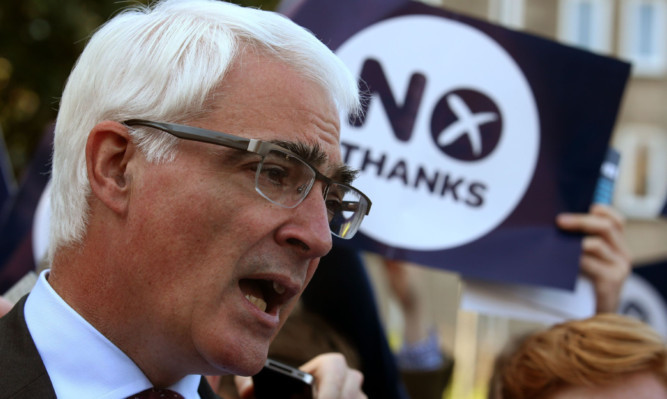Billions of pounds were wiped off Scottish companies on Monday as support surged for independence.
The market jitters drove the FTSE 100 Index more than 1% lower as investors worried about the impact that a Yes vote will have on economic stability and the operations of banks and other companies with bases in Scotland. It is estimated around £2.5 billion fell from firms north of the border.
Sterling fell by around 1.3% against the US dollar to a 10-month low of 1.61, leaving it around 6% lower than its peak of 1.72 earlier this summer.
Shares in Royal Bank of Scotland and Lloyds Banking Group were down 3% on the possibility that a Yes vote will force them south of the border.
Edinburgh-based Standard Life, which has been located in Scotland for 189 years, recently complained that it was still in the dark over the “material issues” surrounding independence. Its shares were 4% lower yesterday.
Outside the financial sector, Perth energy supply and production firm SSE was down 2%, as was Glasgow pumps and valves specialist Weir.
Babcock International, which carries out Royal Navy work at its Rosyth Dockyard, was 5% cheaper, having previously warned that a Yes vote would lead to “additional risk and uncertainty” for the business.
Michael Hewson, an analyst at CMC Markets, said: “For quite some time investors had dismissed the prospect of a Yes vote as an outlier, but recent opinion polls have shifted that perception and this has been no better demonstrated than by the plunge in sterling today.”
He added: “One thing is certain, if we get this sort of volatility on the prospect of a Yes vote, can you imagine the reaction if we do get a Yes vote? It’s not likely to be pretty.”
The market jitters came as a Nobel prize-winning economist warned Scots to “be very afraid” of independence.
Keeping the pound without a political union with Westminster would be a “recipe for disaster”, Paul Krugman wrote in the New York Times.
Prof Krugman said: “Polling suggests that support for independence has surged over the past few months, largely because pro-independence campaigners have managed to reduce the ‘fear factor’ that is, concern about the economic risks of going it alone. At this point the outcome looks like a toss-up.
“Well, I have a message for the Scots: Be afraid, be very afraid. The risks of going it alone are huge.”
A Yes Scotland spokesman said: “Scotland undoubtedly has what it takes to be a vibrant, successful nation in which the benefits of our vast resources are shared more fairly.”
